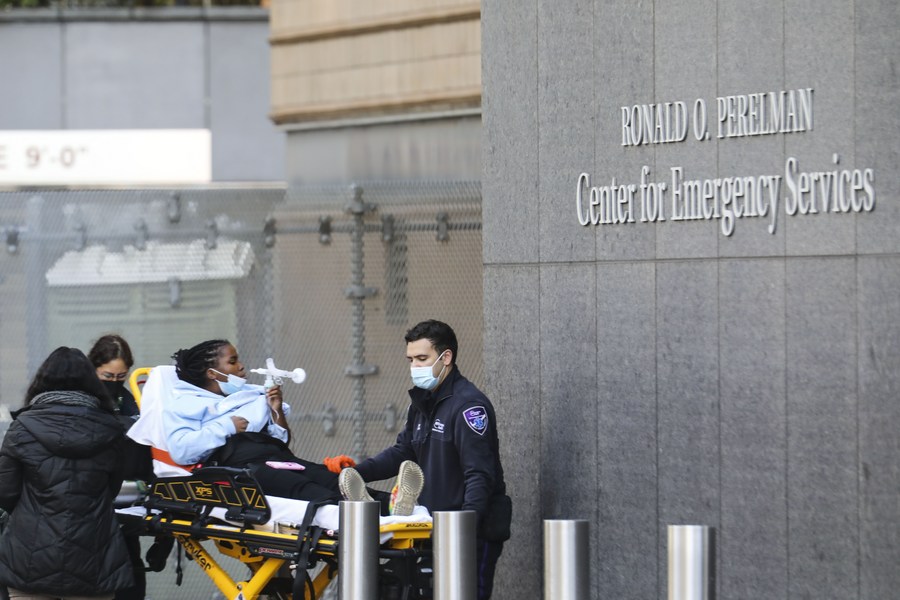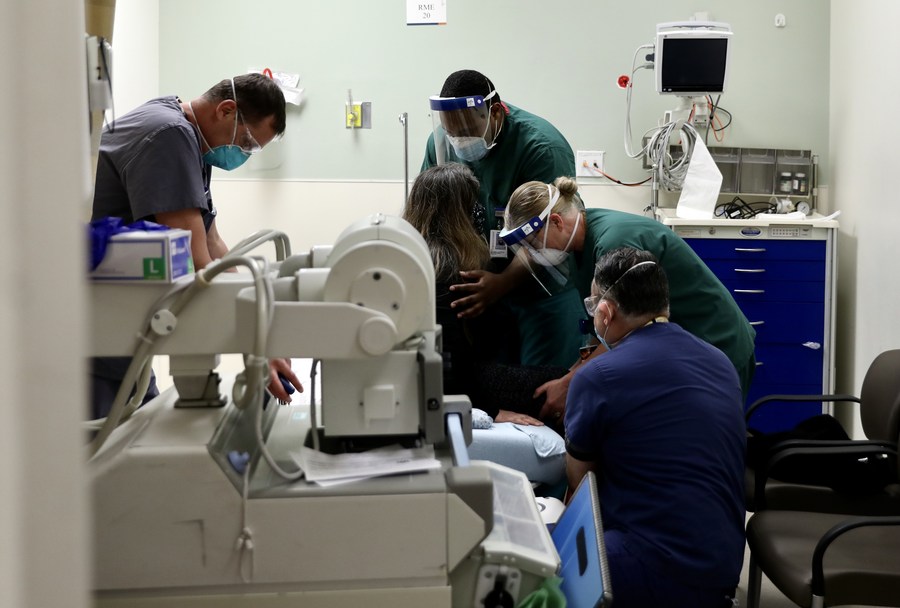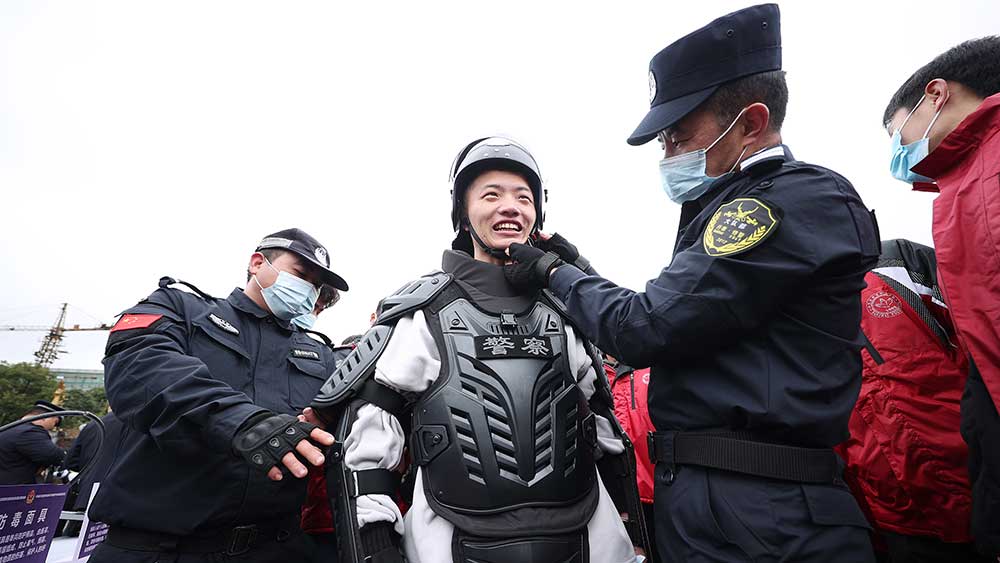
Medical workers carry a patient into a hospital in New York, the United States, Dec. 13, 2021. (Xinhua/Wang Ying)
About 24 percent of the 5,000 U.S. hospitals reporting their staff status to the U.S. Department of Health and Human Services (HHS) have a "critical staffing shortage." This is the largest share of hospital shortages since the HHS began releasing the data in November 2020.
WASHINGTON, Jan. 10 (Xinhua) -- The latest COVID-19 surge in the United States driven by the highly infectious Omicron variant is leading to critical staffing shortages across the nation.
About 24 percent of the 5,000 U.S. hospitals reporting their staff status to the U.S. Department of Health and Human Services (HHS) have a "critical staffing shortage," according to data of the HHS.
More than 100 other hospitals said they are anticipating shortages within the next week.
This is the largest share of hospital shortages since the HHS began releasing the data in November 2020.
These staff shortages kept growing as frontline health care workers are either infected or forced to quarantine due to exposure to COVID-19.
At least ten U.S. states deployed National Guard to help overwhelmed hospitals, according to CNN report.
Virginia governor issued state of emergency on Monday for hospitals. The 30-day state of emergency aims to allow hospitals to increase staffing and bed capacity as hospitalizations hit record levels due to the surge in coronavirus cases and the rise in flu cases.
Child hospitalizations also soared to the highest level of the pandemic.
At Los Angeles Children's Hospital, the positivity rate of children tested for COVID-19 increased from 17.5 percent in December to the current 45 percent in January, according the hospital's medical director Michael Smit.
Los Angeles Unified School District, the second-largest school district in the country, is requiring all students and employees to test negative before returning to the classroom.
The recent record-high new COVID-19 infections in the United States have put additional pressure on the overwhelmed health care system.

Healthcare workers help a patient in the "COVID Area" of the Beverly Hospital in Montebello City, California, the United States, Jan. 22, 2021. (Xinhua)
"While early data suggest Omicron infections might be less severe than those of other variants, the increases in cases and hospitalizations are expected to stress the healthcare system in the coming weeks," according to the U.S. Centers for Disease Control and Prevention (CDC).
Nearly 5 million new COVID-19 cases were reported across the country last week from Jan. 2 to 8, a record high weekly increase since the onset of the pandemic in the country, according to data of Johns Hopkins University. Up to 11,000 new deaths were reported this past week.
The country set a new daily COVID-19 cases record again last Monday as over 1.17 million daily COVID-19 cases were recorded nationwide.
Currently the country is averaging nearly 700,000 cases each day, the most significant COVID-19 infection surge to date, CDC data showed.
The CDC projected that the Omicron variant may account for approximately 95 percent of new COVID-19 cases in the country.
Health experts have been urging the unvaccinated and those eligible for boost shots to get vaccination as soon as possible.
At least 65.5 million eligible Americans remain unvaccinated. ■










